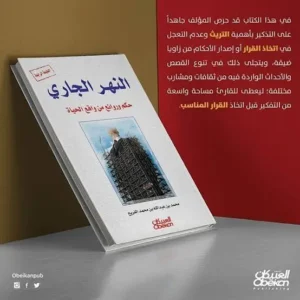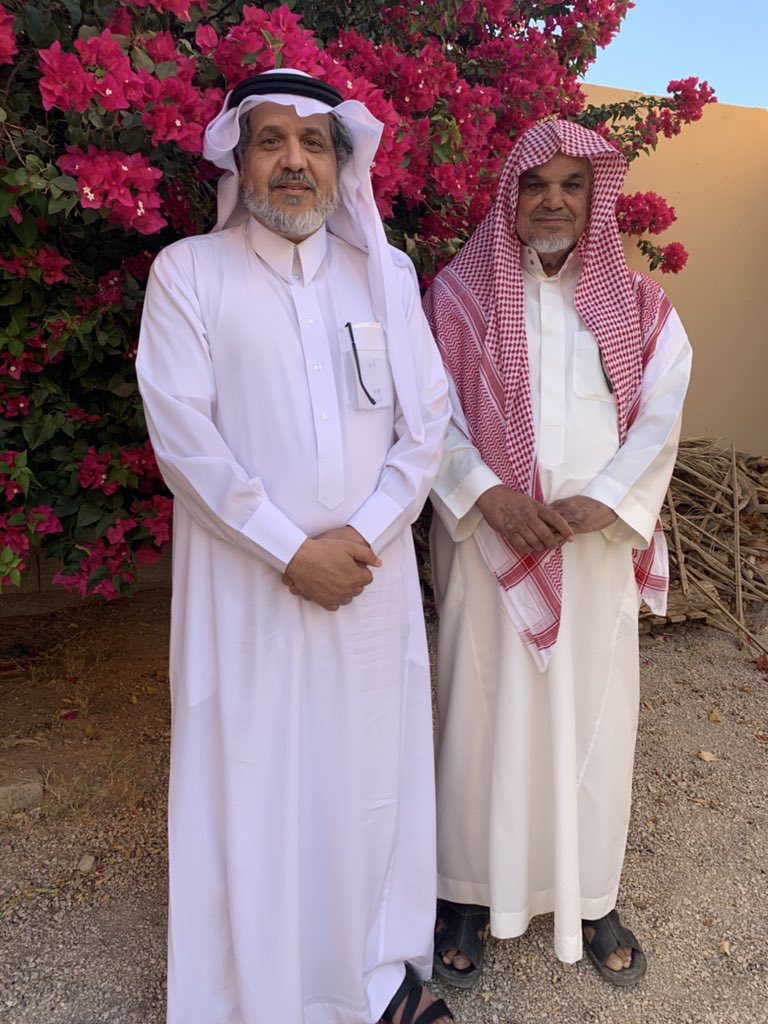Mohammed Al-Farih is a member of the King Saud University Publishing House Board of Directors and the Arab Publishers Association, specialising in publishing, printing indexes, and creating databases for libraries and universities.
His accomplishments and efforts include creating a two-hundred-eighty-page comprehensive index of King Saud University publications in both Arabic and English, overseeing the printing of the Saudi Libraries and Information Association’s index of members, creating the King Saud Publishing Database program, overseeing the design of the Obeikan Library website, and directly supervising the creation of the Family Communication Index within the library sciences and publishing specialisation, along with further comparable initiatives at the international level, such the Riyadh International Book Fair.

In 2009, Mohammed Al-Farih became the director of Obeikan Publishing and Translation Company, managing Fikr Digital Magazine and other digital knowledge platforms.
Interviewed by: Mohsen Hassan
Additionally, he served as the administrative director for publishing, translation, and educational matters. His company has strong connections to the Saudi Publishers Association, Dubai Digital Library, Saudi Intellectual Property Protection Association, and Saudi Observatory in Translation.
The Art of Managing Situations, The Running River, Take The Book with Strength, The Quiet Power, and Changing Your Thoughts Will Change The World Around You, are just a few of his many books and publications.
Mohammed Al-Farih, born on June 10, 1966, received a bachelor’s degree in Documents and Manuscripts from the College of Social Sciences in 1989, marking the start of his professional career. In an interview with Arabisk London, he discussed the key difficulties and solutions regarding authorship, publishing, and intellectual rights.
Arab culture is grappling with significant cultural issues related to authorship, writing, printing, and publishing. Authors face barriers to these processes and exploitation by publishing houses, monopolising their works without their consent and profit. This persistent grievance is growing among creators.
However, because there are no regulations that prevent others from infringing on their intellectual property rights, these persons suffer from the loss of their rights.
The Arab cultural environment is facing a significant imbalance in the value of written content, particularly in the eyes of non-Arab cultures. This imbalance is due to the spread of stereotypical writing, weak translation movements, and the alienation of Arab culture.
Furthermore, the bureaucracy of authorship, publishing, and writing can promote extremist ideology and superficial ideas, making it crucial to address this issue to protect young university classes from intellectual and educational harm.
First, how happy are you with the legitimacy of intellectual property provisions in Saudi Arabia, the Gulf, and the Arab world?
Intellectual property laws have improved significantly in the Gulf and Saudi Arabia, particularly in light of contemporary developments that favour innovation and creative ventures. The establishment of the Intellectual Property Authority in Saudi Arabia, which is actively working in this area, is a good start.
Nonetheless, there is a notable difference in application and execution among Arab nations, since the primary obstacles continue to be low public awareness and insufficient legal deterrent.
What do you think are the main obstacles that the publishing and authorship industries in our Arab universities—and the Kingdom of Saudi Arabia specifically—face?
In reality, we face numerous obstacles in this area, the most significant of which may be inadequate funding and material support; in addition to bureaucracy, authors are frequently left to bear the financial burden of publications; and universities and other institutions impede free and quick publishing.
Likewise, there is a deficient scientific research culture and a pressing need to promote theoretical and practical research that has actual significance.
How do you see the current state of finance for printed books? And why are authors and creators required to fund their creation, let alone profit from it?
Financing printed publications has become a big burden for the great majority of writers, owing to the high expenses of printing and publishing, as well as a lack of institutional or governmental assistance, and a fall in printed book sales in favour of digital books.
To improve this sector, I believe that more government backing or the activation of crowdfunding sites might be the solution.
How do you rate the rate of translation into and out of Arabic, and what are the problems that Arab nations face in this area?
It is evident from the volume of translations into and out of Arabic that the pace of translation is slow in comparison to the volume of cultural production occurring worldwide. The main issues in this area are the scarcity of qualified translators, the lack of funding for translation projects, and the lack of a strategic plan for translating books that highlight the quality of Arabic content.
These issues have a significant impact on the reality of translating into and out of Arabic and cause the knowledge and cultural divide between ourselves and other cultures to grow.
What benefits have the current Saudi cultural and civilisational openness brought to the national publishing and authorship movement?
Saudi Arabia’s current cultural and civilisational openness has benefitted the country’s publishing and authorship movement in many ways, such as encouraging creativity, fostering the growth of new publishing houses, and helping up-and-coming writers.
Also, it has helped organise international exhibitions that showcase local literary, artistic, and cultural productions to a global audience. However, more reciprocal partnerships with international publishing houses are required to expand dissemination.
What are your thoughts on the current connections between Arab libraries and, on the one hand, important international and worldwide libraries?
With a few notable exceptions, this connection is still poor. The primary issue is the lack of digitisation and centralised platforms for data sharing and communication.
Creating Arab digital libraries that interface with international libraries is the answer because it would make it easier for our local and regional libraries to communicate with these international libraries.
In your line of work, Mohammed Al-Farih, what does digital publication mean to you—positively or negatively?
Digital publication undoubtedly has both benefits and drawbacks. Some of its benefits include accessibility, affordability, and dynamic engagement within a single or diversified cultural setting.
On the contrary, the shortcomings of digital publication are the inadequacy of intellectual property rights and the challenge of generating revenue for writers.
But if digital publication is structured to safeguard the rights of creativity, authorship, and publishing, I firmly believe it offers a great chance for any cultural institution that seeks to evolve and modernise.
Why, in your perspective, do Arabs have a limited number of international publishing and authorship awards?
Because literary works continue to be underappreciated in the Arab cultural arena in terms of both money and cultural value and because the selection procedures for winners remain opaque. In this case, encouraging local and worldwide prizes to inspire innovators is the answer.
What threats do you think radical ideologies pose to the abundance of information that our libraries and literature have embraced, from a scientific and human standpoint? And how can we strengthen and protect?
Extremist ideology is a major danger to our treasure of information since it helps to distort history and knowledge and destroy cultural publications. Digitisation, raising cultural awareness, and assisting intellectual institutions are the only ways to get protection and immunity.
How do you now see Saudi women’s roles in academia and the arts? And why hasn’t she been found?
Saudi women now play an increasingly important role, and they have made significant strides in the domains of creativity and research.
All they require is more support for women’s intellectual and cultural endeavours, along with increased empowerment in leadership roles.
You have an unfulfilled dream you want to realise for yourself and your nation. What is it?
A dream like this expresses personal and national goals, and it may be related to the launch of large initiatives that strengthen Saudi Arabia’s worldwide position in publishing and culture.

Read more: Princess Reem Al Faisal to Arabisk London: Arab Art Mimics Western Art and that Art Should be Redefined to Fit Our Culture